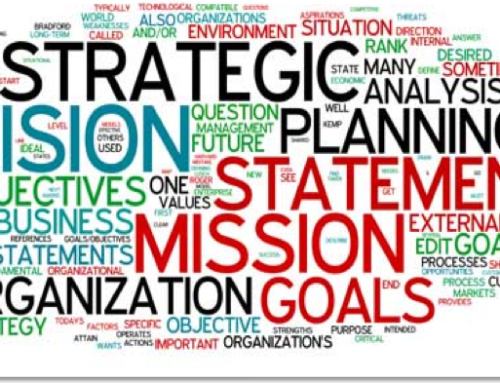 I frequently voice my opinion on behalf of the Public Relations Society of America (PRSA) on ethics, in particular on the issue of “transparency.”
I frequently voice my opinion on behalf of the Public Relations Society of America (PRSA) on ethics, in particular on the issue of “transparency.”
What set me off recently was an article in the Boston Globe about the Super PACs and their impact/effect on the voting public. (Note: The Globe chose not to print my letter, but I’m not giving up!)
PRSA’s Code of Ethics presents clear guidelines on the ethical considerations that public relations professionals should embrace when representing clients or employers.
Of particular note are articles relating to “free flow of information.”
Hiding behind a false front in hopes of getting someone to act in a particular way is in no way an example of transparency.
If I had to choose one word that, in my mind, describes this act, it would be deceit. Or, to borrow the title of one of my favorite country-and-western oldies but goodies, “Your Cheatin’ Heart.”
Democracies are based on informed decision-making by a nation’s citizens. And these decisions are made based on a free and open flow of information to and from those citizens and their leaders.
I would never dispute the right of anyone to represent a client. I might not agree ethically or morally with that individual’s actions, and I might speak out publicly and vociferously against that individual’s choices.
But I also firmly believe in a free society where intelligent people make their own choices and have to abide by the consequences of those decisions.
But… and this is where PRSA’s Code of Ethics comes into play… if you are going to make a decision or take an action that, in your own professional estimation, certain stakeholders are going to find fault with, do so openly and honestly.
Don’t hide behind a smokescreen of deceit, manipulation, and obfuscation. Make your decision; announce your decision; and act on your decision.
If you have conducted your research and talked with representative groups of stakeholders from all the publics impacted by your decision, you will be aware of and prepared to respond to both positive and negative reactions.
That’s what makes the public relations profession a “profession”… one that I am proud to have played a small part in for closing in on half a century… the planning and forethought that go into programs developed on behalf of clients or employers.
And if you find yourself facing a situation that presents public opinion challenges, take a deep breath and listen… again… to Hank Williams’ “Your Cheatin’ Heart.” It’ll “make you weep”!
Image: kelsey_lovefusionphoto via Flickr, CC 2.0
![[EVENT]: PR Hacks for Small Biz (online)](https://shonaliburke.com/wp-content/uploads/2021/06/FB-Ad-1200x800-01-01-01-Copy-500x383.jpeg)








[…] Sorry loyal “Scandal-ites.” I’ve been known to “wax unlyrical” time and again with my view of what comprises good/ethical/professional public relations. Nothing… no way… no how… in this episode was representative of what I, and thousands of […]
@cyberlandgal Thanks so much for sharing @KirkHazlett post!
@shonali Anytime, Shonali! @KirkHazlett had some important points RE #transparency. Would be better world if all #PR folks heeded his advice
@jgarant Thanks for sharing this, Jamie! @shonali
@KirkHazlett @shonali no worries Kirk, great post!
Nice post @KirkHazlett . Unfortunately it’s that old school thinking of PR and communication as ‘smoke and mirrors’ that continues to take legitimacy away from the ethical and transparent practitioners out there. I love that your post mentions the process required to talk to stakeholders and to plan and respond with a larger vision and forethought in mind. Sometimes I think that most people don’t understand the work that goes into these efforts – efforts that do make public relations a profession. Let’s hope that your sentiment and call for transparency are heard and carried forward by all of us as we move forward.
@JGarant @KirkHazlett Ditto!
@spinsucks Thank you for sharing @KirkHazlett guest #WUL post!
Did you represent Big Tobacco in the 80’s Kirk? LOL Great post!
I think of companies like Arthur Anderson who willingly helped the Enron debacle. I know we all want to make money. And my industry Advertising is not very honest most of the time. Unlike our right to an attorney in the constitution businesses do not have a right to PR or Advertising services. Yes money talks. But the Agencies and Individuals have a fiduciary duty to be truthful to their clients/stakeholders even if they are paid to not be fully truthful to the public (and agree to this). Also internally. Sometimes you can do something that brings you guilt by association.
@ginidietrich often mentions this when there are PR debacles. A good agency will run through all possible outcomes, risks etc And they should turn away business if they are asked to go against their own code of conduct/ethics even if the price seems right,
@HowieSPM @ginidietrich
Would that all our colleagues viewed the situation this way. Unfortunately…
Couldn’t agree more kirkhazlett . I’d make the argument that 99% of PR crisis situations could have been averted by simply being open and transparent. Really enjoyed the read!
kirkhazlett Also, I’m pleased you mentioned both kinds of music. Country and western.
@MattLaCasse
Thanks very much, Matt. And you’re absolutely right about crisis communication “success.” I have spent a LOT of time in my life convincing higher-ups that they couldn’t sweep the situation under the rug and pretend it didn’t exist. But, it seems that the concept lives on!
@KirkHazlett @MattLaCasse I want to bring attention to compensation. The Iraq War had plenty of cost plus contracts. So there was no incentive for contractors to be fiscally responsible in fact the incentive was the opposite.
Granted a crisis could risk losing a client. But if you are retained on an hourly basis couldn’t that incentivize and agency to allow a crisis to unfold?
@HowieSPM @MattLaCasse
Now you’re getting into the “other” side of this conundrum, Howie. Are we doing this for the “greater good” or the “bigger check”? Some of our so-called PR consultants appear to embrace the latter.
@KirkHazlett @MattLaCasse But this can be fixed by a compensation structure that rewards for minimizing crises. a big company could easily do a 10 year review and identify preventable events and come up with a per year number then use that savings if it happens as a rebate to the agency.
@HowieSPM @KirkHazlett Sort of building in an “ethics clause” into your contract. I like that idea. The unfortunate truth is that not every person in our industry will ever be completely ethical. All we can do is continue to show that most reputable PR pros are transparent, open, honest, and ethical.
I think we have to face and accept the reality of the matter which is, as Matt points out, not all our colleagues are going to embrace overt ethical standards. What we, as sincere professionals, must do is exactly what Matt says…”show that most reputable PR pros are transparent, open, honest, and ethical.”
I’m not giving up! :-)